Iran Would Not Go Unpunished For Instigating Attacks – Israeli PM
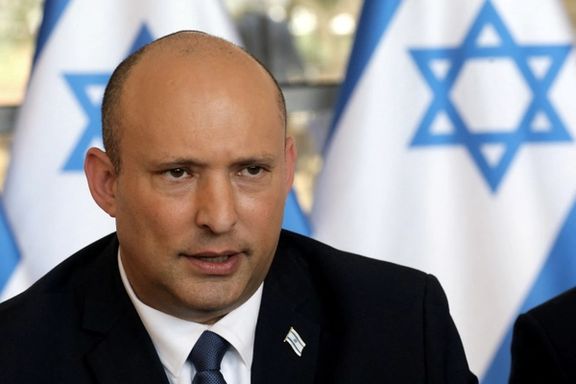
Israeli Prime Minister Naftali Bennett said on Sunday Iran would not go unpunished for instigating attacks through its proxies.

Israeli Prime Minister Naftali Bennett said on Sunday Iran would not go unpunished for instigating attacks through its proxies.
Speaking a week after the assassination in Tehran of Revolutionary Guard colonel Hassan Sayyad-Khodaei -- a member of Quds Force, responsible for operations outside Iran’s borders -- that has been blamed on Israel, he said, "Whoever funds terrorists, whoever arms terrorists, whoever sends out terrorists, will pay the full price.”
"For decades, the Iranian regime has practiced terrorism against Israel and the region by means of proxies, emissaries, but the head of the octopus, Iran itself, has enjoyed immunity," Bennett said.
"As we have said before, the era of the Iranian regime's immunity is over. Those who finance terrorists, those who arm terrorists and those who send terrorists will pay the full price," he added.
"Iran has also been investing in lies such as its deliberate misleading of the IAEA in order to evade visits by the agency, as was revealed last week. The Iranian regime is based on tyranny, terror and lies," Bennett added, noting that "The world must stand alongside the Iranian people and stand up against the brutal regime."
Khodaei was killed outside his home on a residential street in Tehran on Sunday when two gunmen on motorcycles approached his car and fired five bullets at him.

Zar Amir-Ebrahimi, Best Actress at Cannes Film Festival says her heart is with the people of Abadan where a recent building collapse has sparked angry protests.
"Although I’m very happy at this moment, part of me is sad for the people of Iran who are grappling with many problems daily. I'm here, but my heart is with the women and men of Iran. My heart is with Abadan," actress Zar (Zahra) Amir-Ebrahimi said in her acceptance speech inher native Persian with a quivering voice.
Thousands have taken to the streets in Abadan and several other Iranian cities to protest against the government over the past few days following the collapse of an illegally built, new ten story building on Monday.
The tragedy has so far claimed 29 lives and many more are feared dead under the debris. Protesters have been chanting slogans against Supreme Leader Ali Khamenei and other officials who they hold responsible for corruption and mismanagement of the country.
Amir-Ebrahimi received her award for playing the role of a journalist in search of a serial killer in Holy Spider. The thriller directed by Denmark-based Iranian-Canadian filmmaker Ali Abbasi is inspired by the true story of serial killer Saeed Hanaei who strangled 16 women in the religious city of Mashhad between 2000-2001.
Many Iranians feel proud of Amir-Ebrahimi, the first woman of Iranian cinema to earn the award but hardliners have condemned Amir-Ebrahimi for playing in the film which they say insults their religious beliefs.
Hanaei who came to be known as the "Spider Killer" was finally caught and hanged in 2002 but many alleged that the police had closed its eyes to his murders for so long because he chose his victims from among prostitutes. He even turned into a hero for those who supported his claim in the court that he wanted to cleanse the city of his victims’ ‘moral corruption’.
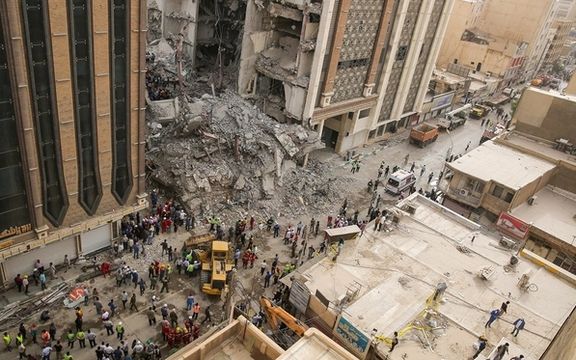
The poster of the film has particularly angered the hardline religious establishment. It shows Mashhad from above at night with the shrine of the 8th Imam of Shiites of the 8th Imam of Shiites at its center. They say the street lights in the poster look like the legs of a spider spread over the city from the center where the shrine is located.
“She has received the best actress award of Cannes Film Festival for playing in a completely anti-Iranian, anti-religious film full of insults to Iranians’ religious beliefs including [belief] in Imam Reza,” one of her critics tweeted.
“You are happy about Amir-Ebrahimi’s award? Never mind the anti-religious character of the Holy Spider, how do you justify its anti-Iranian approach?” Danial Memar, editor-in-chief of Tehran municipality’s Hamshahri newspaper, told the actress admirers in Iran in a tweet. “You are such traitors to your homeland,” he added.
Amir-Ebrahimi, 41, became a victim of a smear campaign when she was a young actress in her twenties. A sex tape leaked online in 2006 ended her carrier in a country where religious and traditional prejudices are very strong. She has lived in France since the incident.
“This film is about women, it's about their bodies, it's a movie full of faces, hair, hands, feet, breasts, sex -- everything that is impossible to show in Iran," Ebrahimi told the audience at the awards ceremony.
"I have come a long way to be on this stage tonight. It was not an easy story," she said. "It was humiliation but there was cinema, it was solitude but there was cinema, it was darkness but there was cinema. Now I'm standing in front of you on a night of joy."
The film had to be shot in Jordan as Iranian authorities did not allow Abbasi to make the film at home. There film is extremely unlikely to receive screening permission in Iran.
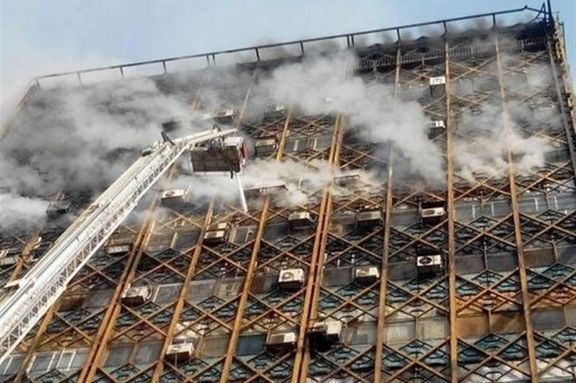
Tehran Fire Department says it will announce the list of 129 unsafe buildings in the capital, stating that there are more than three thousand cases of such buildings in the capital.
Ghodratollah Mohammadi, the caretaker of Tehran Fire Department, said on Sunday that “When we know that a large number of our citizens are in unsafe buildings every day, we should not be afraid to publish the names."
"In coordination with the prosecutor's office, we will publish the list of 129 buildings," he added.
He made the remarks as sporadic protests continued in Iran on Saturday despite a heavy presence of security forces and minimal information available with lack of internet access.
Thousands of security forces, some dispatched to Khuzestan in recent days, were present in Abadan where the building incident took place and in other cities.
The number of victims of the collapse of the Abadan Metropolis building reached 29 as new bodies are being discovered under the rubble.
The people of Shahinshahr in the central Esfahan province and Bandar Abbas in the southern province of Hormozgan also held protest rallies to show their solidarity with the people of Abadan, whose mourning ceremonies for the victims of the collapsed ten-story Metropol twin towers have turned into anti-government protests since Wednesday.
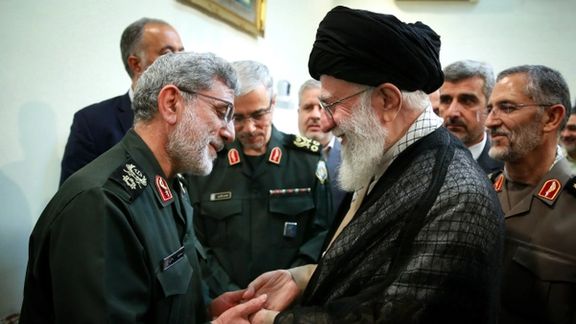
Fars news website in Iran affiliated with the IRGC has published an article profiling several Israeli businesspeople, using thinly veiled threatening language.
The article published on Sunday and credited to the “International Desk” of the website claims it obtained “internal information” about these individuals who are “experts in military, security, cyber and technology fields of the Zionist regime.” The website also claims that the individuals were involved in “sabotage in Islamic countries and assassination of resistance activists.”
The artice is headlined, "Zionists who have to live in hiding".
It goes on to say that “The rest of the information includes very precise details about their family members, photos and videos, home and work addresses, and their commuting routes, as well as telephone numbers…”
However, the information published about each person is very brief and can be easily obtained from public sources.
The first person on the list is retired Major General of the Israeli Defense Forces, Amos Malka (1972-2002), who was director of IDF Intelligence and commander of ground forces during his military career.
Fars used a couple of publicly available photos of Malka, who for the past 20 years has been a successful businessman. He is currently involved with several companies as partner or chairman of the board, including Windare Ventures, Aitech, supplying rugged computer systems, and co-founder of Spire Security Solutions, a security and intelligence company.
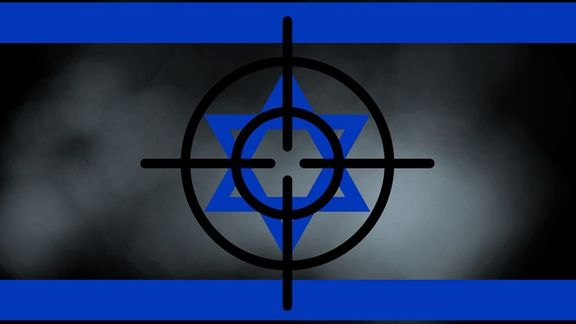
Amir Levinthal is another individual named by Fars, who is the founder of Cylus, a rail cybersecurity company. He is also a former military officer and Fars says he served in IDF intelligence.
The article also profiles Gal Genut, CEO of cyber intelligence company Analiza, who served as director of Unit 8200 of the Israeli Intelligence Corps. Fars says that Genut is also involved in IntSights and says that both companies are contractors for the Israeli government and its intelligence service the Mossad.
Next, the Revolutionary Guard’s mouthpiece profiles Inbal Arieli, as one of 100 most influential persons “in new technologies of the temporary Zionist regime and one of the most well-known Zionist job creators.” It adds that Arieli was also a part of Unit 8200 and “believes that special unit operational tactics should be also used in the business world.”
Amit Meltzer is another Israeli cyber specialist Fars mentions and says he is an expert in cyber defense technologies.
The Fars article comes at a time when the Islamic Republic seems exposed and vulnerable to Israeli operations inside the country. Numerous acts of sabotage and assassination have occurred in Iran since July 2020. Sensitive nuclear, military and economic targets have been hit, although Israel has never confirmed or denied involvement.
The last incident occurred on May 22, when an operative of the Revolutionary Guard Qods (Quds) Force was gunned down outside his home in Tehran in broad daylight. A security source later told Iran International that the IRGC colonel Hssan Sayyad-Khodaei was responsible for recruiting operatives for terror attacks against Israelis.
Iranian officials, shaken by the incident, vowed revenge for the killing as reports said Israel had privately told the United States that it had eliminated the alleged terror organizer.
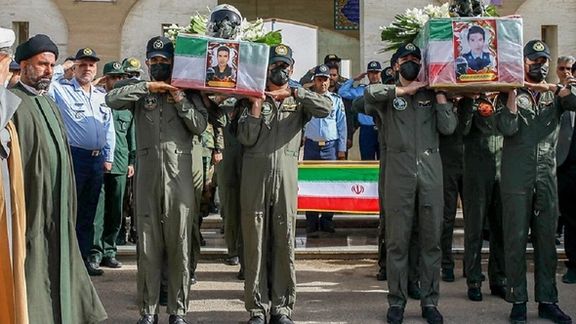
A veteran Iranian fighter jet pilot says sanctions on the country are the main reason for the high number of military aviation accidents and casualties among air force pilots.
Brigadier General Kioumars Heidarian, a retired pilot who underwent training in the US state of Texas and flew fighter jets for Iran’s air force both before and after the 1979 revolution, told ISNA on Saturday that if Iran could procure better aircraft equipment, it could reduce the number the accidents.
“Accidents happen everywhere, and no one in the world has managed to decrease the number of accidents to zero, but if the equipment is complete, it is natural that the number of accidents will be fewer,” he said.
The veteran pilot added that the situation would have been much better if new fighters replaced the current dilapidated fleet, noting that “parts are made both domestically and imported from countries such as Russia and China, but the main problem is international sanctions against our country.”
Last week, an F-7 fighter jet of the Iranian Air Force crashed near the central city of Esfahan, killing both of the aircraft’s pilots, and in February, two other pilots were killed when an Iranian F-5 fighter jet crashed into a soccer stadium in the northwest city of Tabriz.
In June 2021, two Air Force pilots were killed at Dezful air base in the southern province of Khuzestan due to the sudden glitch in their ejection seats while preparing the plane before the flight.
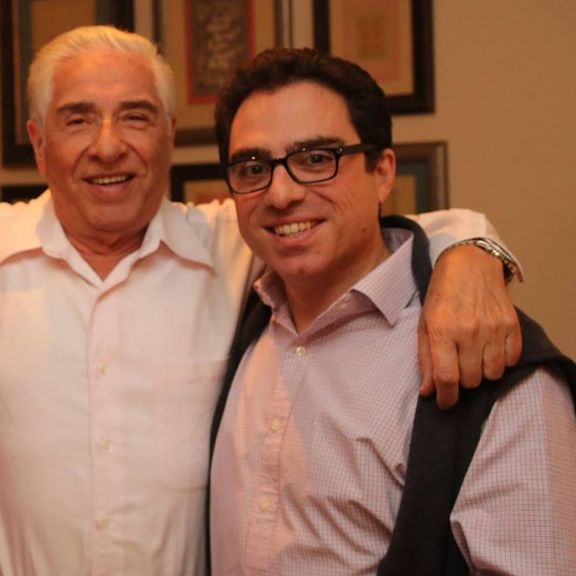
Jailed Iranian-American businessman Siamak Namazi has criticized the presence of Iran's foreign minister at Davos, saying his was convicted on charges of collaborating with the World Economic Forum.
In a letter to Foreign Minister Hossein Amir-Abdollahian on Saturday, the dual-national who has been imprisoned in Iran since 2015 asked how it is possible the Iranian diplomat attended the annual meeting in the Swiss resort while he was indicted for his cooperation with the forum.
"The Revolutionary Court sentenced me to 10 years in prison -- in concurrence with the opinion of security officers -- stating that the purpose of the World Economic Forum from the young international elites' visit to Iran was networking for social movements and overthrowing [the government], and also recognized that this Swiss assembly is considered to be the same as the hostile US government," the letter read.
He added, "If the ruling is correct, shouldn’t we ask what you were doing in Davos last week and why you attended the main conference of such a problematic institution?", and "If the court's interpretation is wrong, shouldn't we ask why I have been living in Evin [prison] for more than 2,400 days without any rights, such as a furlough.”
Siamak Namazi has been in prison since October 2015 on vague charges of collaboration with a foreign government. After Siamak’s arrest, his 84-year-old father, Bagher Namazi, a retired senior UNICEF official, traveled to Iran in 2016 to help him but he was also arrested and jailed in 2017 on vague accusations. Both are serving ten-year sentences.